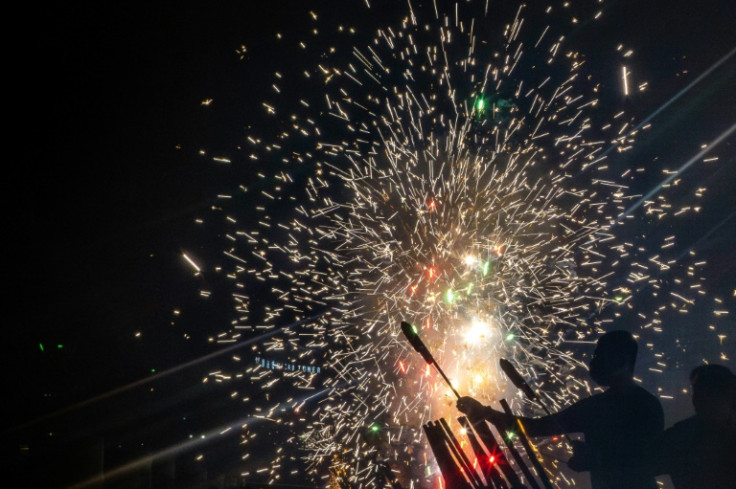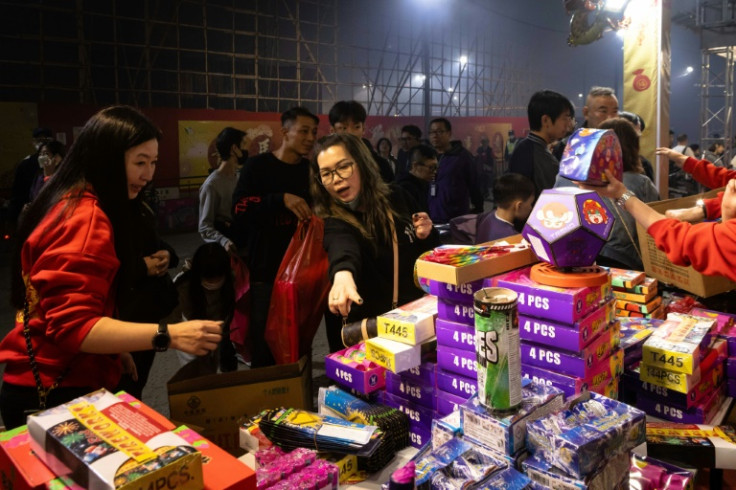
Excited crowds pose with lengthy red chains of firecrackers hoisted on towering tripods along Macau's waterfront, revelling in the final hours of the Lunar New Year holiday before igniting the fuses.
The rapid-fire detonations create a constant, thunderous roar over swathes of the Chinese territory's shoreline during Wednesday's raucous celebration, the last of six nights when fireworks are allowed.
The former Portuguese colony strictly controls the sale and lighting of the explosives, and the annual holiday ritual -- limited to two designated zones -- is the last remaining trace of Macau's once-prominent position in the global firecracker trade.
"Every Chinese New Year, I would come here around the last day just to check out the fireworks," said Mike, a Macau native visiting home for the holiday season.
"Usually in the last hour or so, they will do a fire sale on the fireworks."
Now best known for its flashy casinos, Macau was once reliant on its manufacturing industry, with one of its islands, Taipa, dedicated almost exclusively to firecracker production.
Albert Lai, born and raised on Taipa, recalled how every household in his neighbourhood including his own would task their children with "braiding" firecrackers.
"When it's Lunar New Year, we didn't have to buy firecrackers. Some of the firecrackers (we braided) had loose fuses," Lai, a researcher on Macau's history with the explosives, told AFP.
"We were supposed to hand them back, but all families kept some for themselves."
Back then, the use of firecrackers was more relaxed, with the small explosives being used for weddings, business openings and even family memorials.
"Things used to be different. A few good friends and neighbours would light firecrackers among ourselves," Lai said.
Lai said Macau was exporting to major American cities in the 1930s, though the industry eventually declined in the 1970s due to stiff competition from mainland China.
Sheyla Zandonai, an assistant professor at the University of Macau's history department, agreed that the industry's disappearance was linked to China's "economic opening and reforms beginning in 1978".
"Many of the other factories that existed in Macau actually shut down because of this change," she said.
Nowadays, all the territory's firecrackers and fireworks are imported for the brief celebration period -- and it has become a huge draw for tourists eager to light a fuse.
Jesse Gaviola, who works at a stand selling firecrackers and fireworks, said most of his customers come from neighbouring Hong Kong, where there is a complete ban on personal firecracker use.
"It's a good experience for locals -- for tourists to come to Macau to enjoy something else besides casinos," he said.








